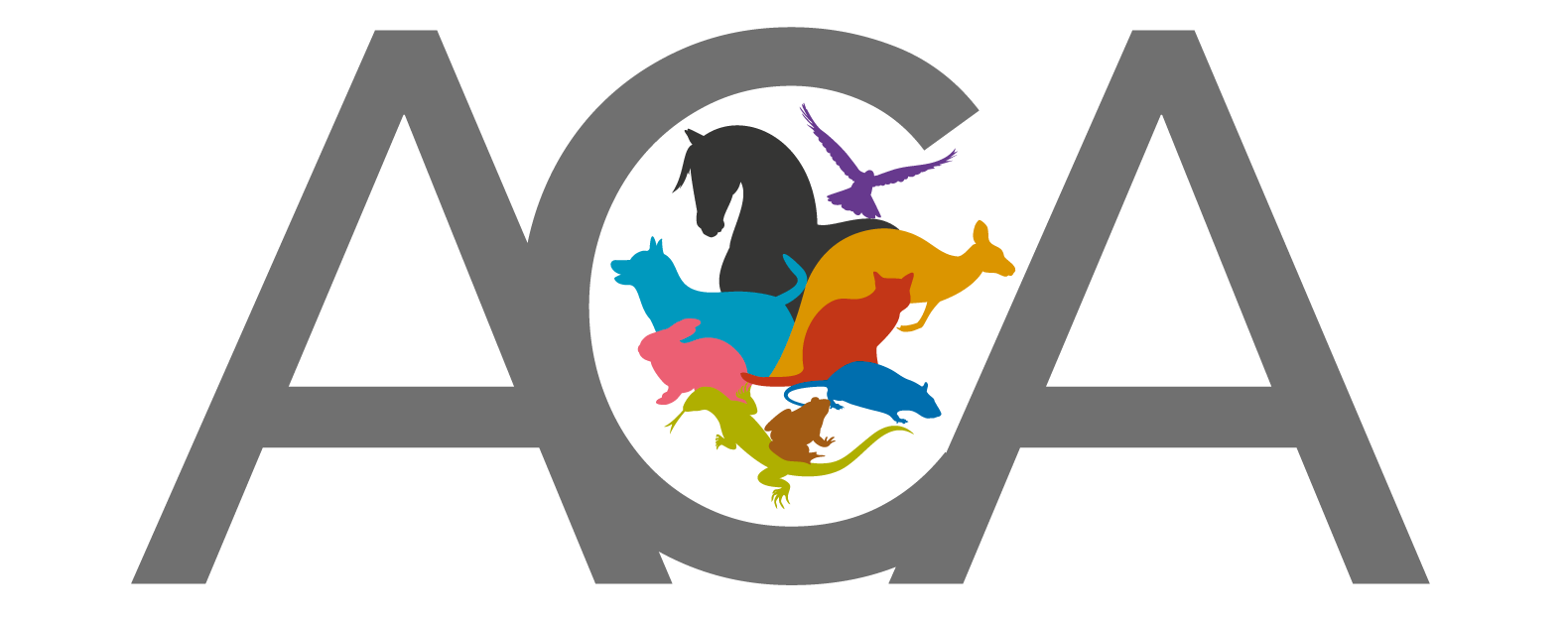Covering Community Companion Animal Expos, Club Shows, Competitions and Recreational Activities.
There are many social animal groups and organisations that hold shows, expos and competitions across a wide range of species. Groups and organisations should instil and implement internal codes of practice for the holding of these events. These codes of practice must ensure strong welfare standards are met which include:
- the use of holding & exhibiting (display) cages designed for minimum stress and where applicable providing easy access to feed and water.
- animals exhibited outdoors may be exposed to heat or cold, so must be provided with suitable shelter and protection from extreme conditions.
- display areas should provide a space where animals exhibiting symptoms of stress can be immediately removed from public view.
- limits on numbers of animals permitted per cage to ensure no over-crowding or potential fighting.
- display cages must be able to be secured to prevent the accidental release/escape.
- animals that may pose a potential risk to the public due to possible biting or are venomous (such as some reptiles, arachnids & other invertebrates) must have protective area of fencing or defined boundaries ensuring a safe viewable distance for the public.
- if there is a need for animals to be transferred from one cage to another – an enclosed and sealable area should be provided by the organisers to prevent the risk of escape.
Animal Care Australia supports companion animal Expos, Club shows and competitions
Social animal groups and organisations hold additional events that enhance interaction and allow the animals to display their skills while exercising. These include horse riding events, dog sport activities, training activities and more.
Unfounded concerns from Animal Rights Extremists (ARE’s) have been raised in regards to the following:
Recreational Carriage Driving
This activity is being forced out of national parks, recreational spaces and other suitable public spaces with rule changes contrary to public wishes. Increasingly carriage driving is limited to private property or public roads, which can be unsafe due to careless motor vehicle drivers.
Many horses are not suitable for riding, and most people cannot keep up with a horse at any pace above a walk, so driving is a great activity for them to keep them fit and healthy. It also meets horses’ innate need to explore their surroundings. Ponies and mini horses in particular can end up spending much of their lives contained in small yards in order to restrict their access to excess feed, but this also restricts the self-exercise larger paddocks provide.
Carriage driving can be the perfect activity for minis, outgrown kids ponies, or horses who cannot carry weight on their back. The weight of a correctly sized carriage puts almost no weight on the horses’ back, and the horse only pulls the carriage when increasing pace or going uphill.
A horse can comfortably pull twice their own weight on level ground, and half that on hills or rough terrain. Horses NEED a lot of exercise to live long healthy lives, and to feel good about themselves, improving their mental state.
Horses with proper training enjoy driving as much as their humans do. The public are usually excited to encounter carriage horses.
Carriage driving is popular amongst the disabled and former riders, who, due to injury or illness, can no longer ride or walk with their horse. Driving keeps horses active and well cared for in their forever home for longer.
Equestrian Activities
Horses and ponies may engage in a wide variety of equestrian activities. Competitive sports can range from club level gymkhanas, to endurance events, showing and horse agility, up to the elite levels of dressage, show jumping, reining and mounted archery. Non-competitive activities can include trail riding, trick training and hiking.
Horses and ponies benefit from lots of exercise and enrichment that training provides. Most horses enjoy their activities and outings, and regular outings with horses helps prepare them for emergency evacuations (it’s too late to teach a horse to load into a trailer when the bushfire is already next door) and to be calm and safe in strange environments.
Horses that regularly engage in a wide range of activities are viewed as more valuable – not just in monetary terms but because a well educated horse with a wide range of experiences is a calmer, quieter and safer horse to handle and ride or drive.
Owning horses is no longer a symbol of elitism or wealth. Most modern horse owners are ordinary people, who make many personal sacrifices to take good care for their animals. Welfare standards are constantly improving in animal husbandry and competitive sports, and modern horse handling methods have evolved well beyond the ‘old days’ of breaking horse’s spirits.
Animal Care Australia supports owners who ensure their horses and ponies live in horse friendly accommodations, are appropriately educated, and are fit enough to comfortably participate in the activities asked of them, with comfortable, well-fitting equipment.
Dog Agility and Show Events
Many dog breeds are utilised in different activities such as fly-ball, IGP and other competitive sports organised by community-based social groups and associations and are separate to the greyhound racing industry.
Animal Care Australia has no objection to these events continuing, as long as the appropriate breeds are utilised within the appropriate events, and high welfare standards are maintained during training, participating in the event and care at home.
Animal Care Australia does not support the existence of breeding standards that result in the loss of physical function where the appearance or presentation of the animal takes precedence over the health and well-being of the animal
Animal Care Australia supports animal agility events, equestrian activities, recreational carriage driving and dog sporting events.




